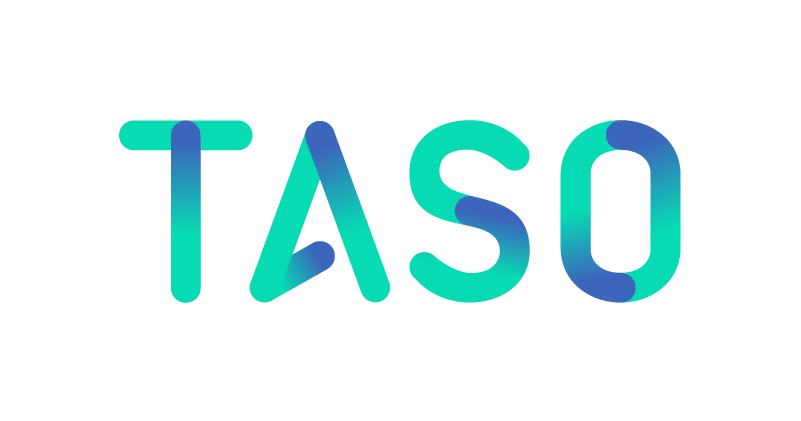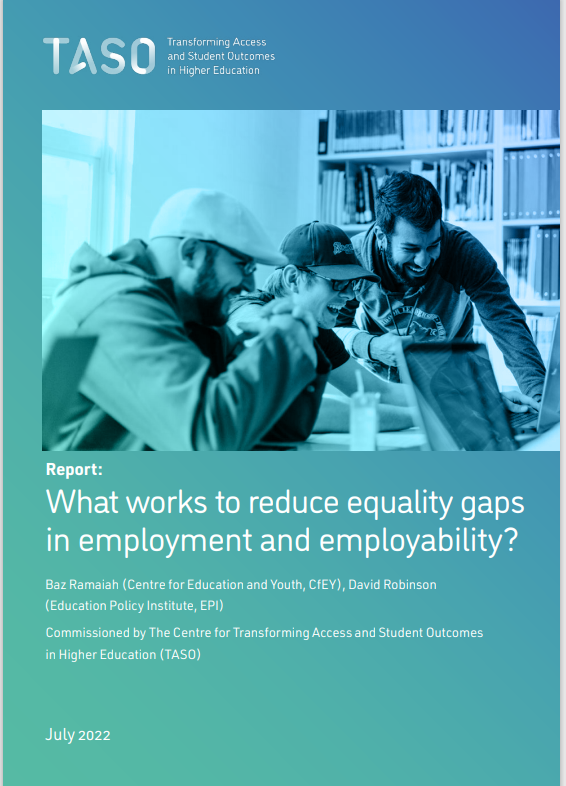A new report, commissioned by The Centre for Transforming Access and Student Outcomes in Higher Education (TASO) and produced in collaboration with EPI and the Centre for Education and Youth (CfEY), explores existing evidence behind proven methods to reduce employment and employability inequalities.
The report utilises a range of evidence to answer a number of questions.
- Data analysis to understand the context. What are the labour market outcomes for graduates from disadvantaged backgrounds and how do they compare to those for non-disadvantaged graduates?
- Literature review to gather evidence of what works. Which programmes does the technical and academic literature suggest are effective in improving labour market outcomes for disadvantaged graduates?
- Sector consultation to explore insights from practice. What do practitioners and experts working in the field of graduate careers and employment report about their experiences of delivering and evaluating programmes for students from disadvantaged backgrounds?
Summarising existing evidence behind closing quality gaps in employment and employability, the report makes a number of recommendations for higher education providers to improve equality.
HE providers should:
- Adopt a strategic approach to careers and employability provision, that begins with a theory of change specifying desired employment outcomes for students and acknowledging that different groups may experience different barriers to achieving these outcomes.
- Develop and evaluate employment and careers programmes specifically targeted at reducing gaps in employment outcomes.
- Further explore the impact of sandwich courses and other types of work experience on labour market outcomes for disadvantaged and underrepresented students.
- Develop robust evidence of the impact of IAG provision that involves individuals from similar backgrounds to the students it targets and opportunities for interaction with teachers and lecturers who have spent time in industry.
- Develop and evaluate alumni or peer mentoring opportunities for disadvantaged and underrepresented students (including specific initiatives to support disabled students).
- Invest in trialling and evaluating innovative, technology-based approaches to careers and employability improvement.
- Design and evaluate the efficacy of approaches to support the uptake of and participation in career and employability services amongst students expected to benefit most from the support available.
- Where universal provision is preferred, HEIs should seek to ensure that they gather data on the social background of participants, and assess whether such programmes tackle equality gaps.
- Run robust trials of different careers and employability programmes across multiple candidate providers to develop the ‘what works’ evidence base.
- Support collective learning across the HE sector on what works to reduce employability gaps and, crucially, share new and emerging evidence.
You can find access and read the full report here.

The Centre for Transforming Access and Student Outcomes in Higher Education (TASO) was set up in 2019 and is funded by the Office for Students on an initial grant until 2023. TASO works to eliminate equality gaps in higher education through evidence-informed practice in higher education.


